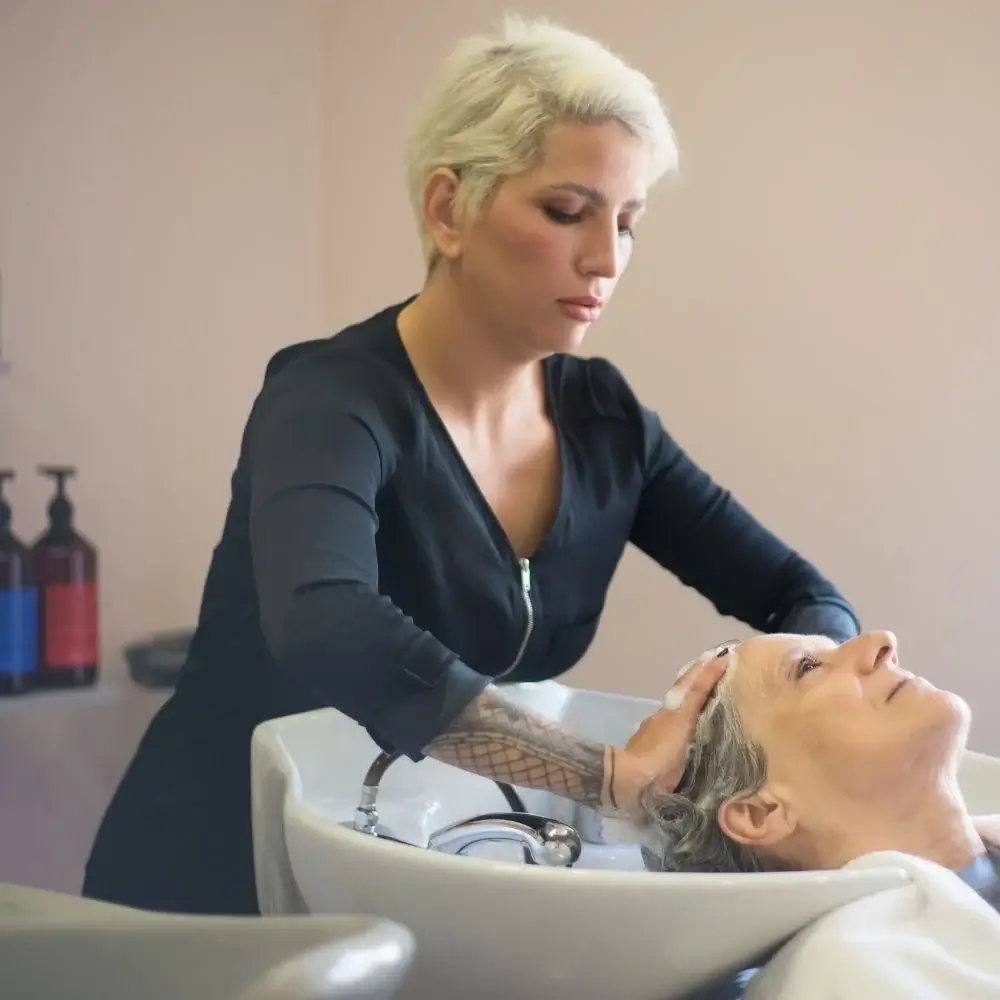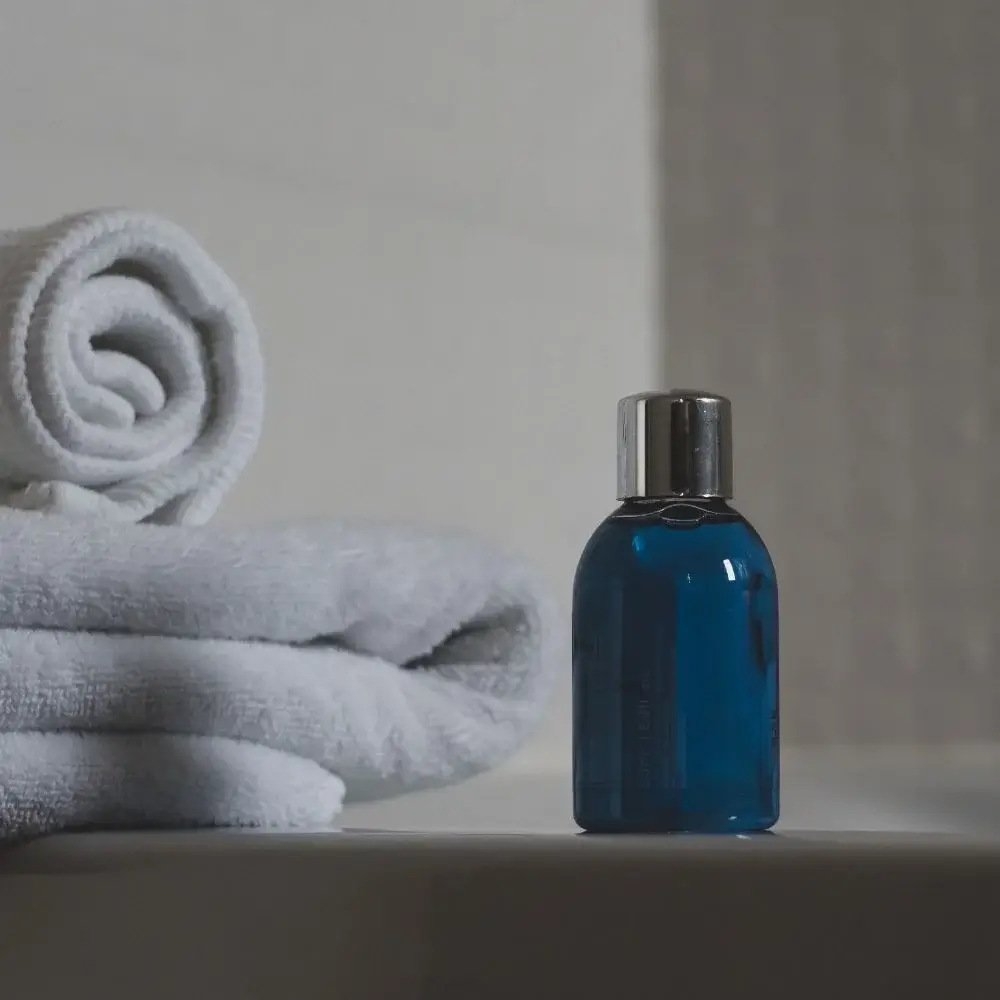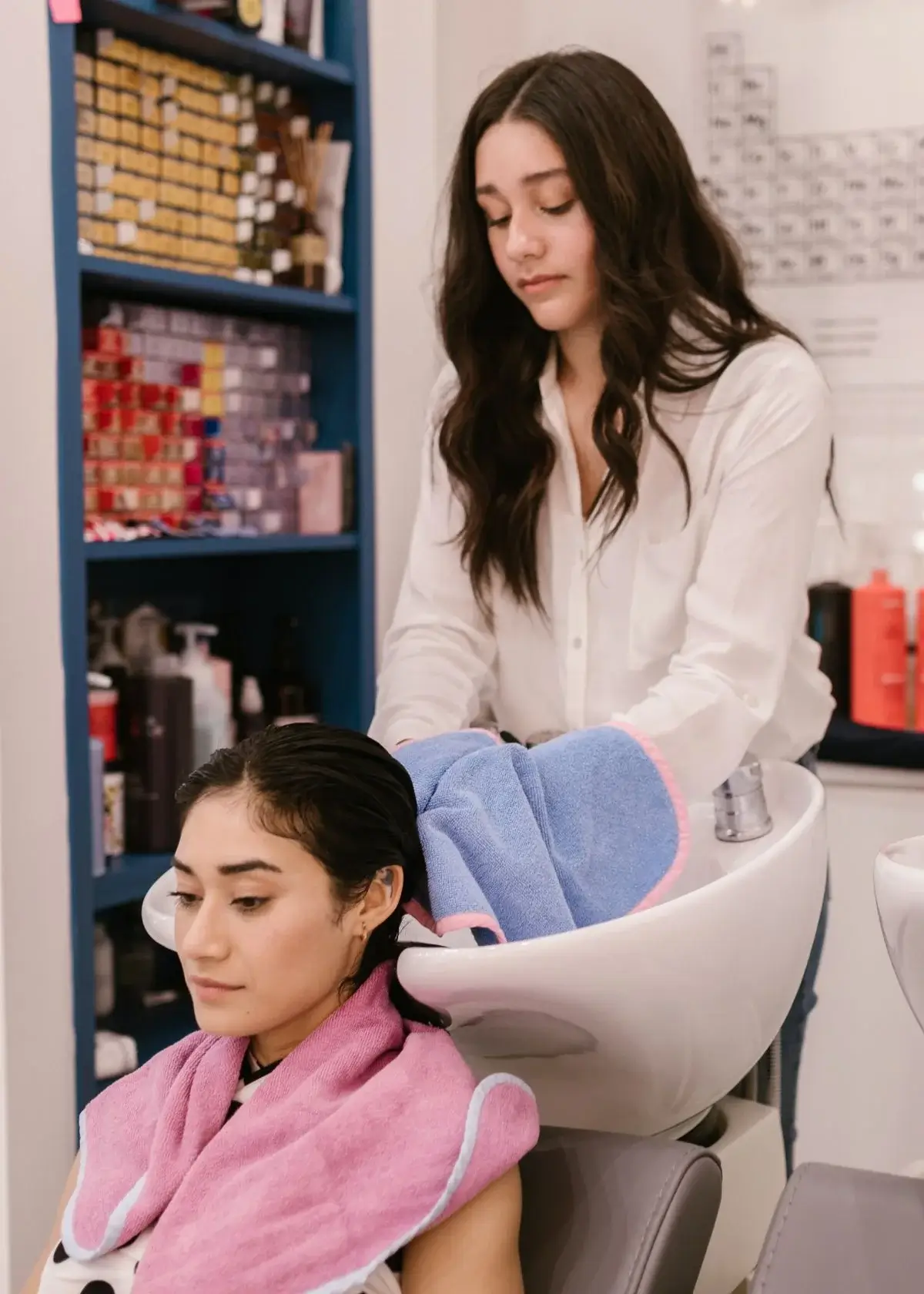Did you know mineral-rich, hard water can cause severe damage to your hair? If you suffer from hair fall, rough and damaged hair, or dandruff, hard water's presence in your house's supply may be the culprit. While there isn't much you can do about your water quality, you can take protective measures to avoid hair damage. So, let's take a deep dive into how hard water affects hair and learn ways to protect your hair from being damaged.
What is hard water, and how does it differ from soft water?
Hard water is regional tap water that contains high levels of dissolved minerals such as magnesium, calcium, and iron. When your water contains more than ten parts dissolved compounds, it is called hard water. In contrast, soft water is water that contains lower levels of dissolved minerals and is easy to work with. The difference between both water types is the number of minerals they contain and the effects they have.
Why is hard water damaging to the hair?
When you use hard water to wash your hair, it leaves behind minerals that create a thin layer of calcium and magnesium on your scalp's surface. The layer builds up over time, leading to dandruff, scalp irritation, and itchiness. Besides that, the layer also sticks to your hair, making it hard to rinse clean and leaving hair feeling dry, dull, and brittle.
How can you protect your hair from hard water damage?
One of the first things you can do to help reduce hard water's impact on your hair is to implement a shower filter. A shower filter is an inexpensive device that attaches to your showerhead that removes the mineral content from the water before it touches your skin or hair. Along with the shower filter, use a clarifying shampoo to provide periodic detox to your scalp and hair and keep it free from mineral buildup. Moreover, you can opt for deep conditioning treatments with natural oils and vitamins like olive oil, coconut oil, and jojoba oil.
What are the long-term effects of hard water exposure on hair?
Long-term exposure to hard water can lead to excessive hair shedding, dandruff, brittle hair, split ends, and the frustrating lack of hold or style you want from your hair. Moreover, the buildup of minerals on your hair and scalp can lead to itchiness and irritation, causing pain and discomfort. Such long-term effects not only damage your appearance; they can affect your self-esteem as well.
Protecting your hair from hard water damage is essential to maintain health, shine and grow long. A few precautionary measures, like using a shower filter for clean water, clarifying shampoos, moisturizing conditioners, and natural hair treatments, can ensure soft, bouncy, and silky hair. So, don't let hard water ruin the beauty of your hair anymore. Start protecting it today and embrace the luxurious hair you deserve.
Calling all beauty lovers! Have you ever struggled with finding the perfect shampoo to combat hard water's harsh effects on your hair? Don't worry; we've researched for you to find the best shampoo for hard water. Our expert beauty editors have hand-picked the top shampoos that will leave your hair feeling soft, silky, and clean. Say goodbye to dull, lifeless hair and hello to a new favorite shampoo. Click the link now to discover your new holy grail product. Trust us; your beautiful locks will thank you.
What other hair care products should be used alongside a shampoo for hard water?
In addition to using a shampoo specifically designed for hard water, it is recommended to incorporate a few other hair care products into your routine. A good conditioner is essential as it helps restore moisture and nourish your hair, combating the drying effects of hard water. Using a clarifying shampoo once a week can also be beneficial in removing any mineral buildup. Furthermore, a leave-in conditioner or a hair mask can provide extra hydration and protection. Finally, consider using a heat protectant spray before styling your hair to shield it from potential damage caused by hot tools.

What precautions should I take when using shampoo for hard water?
When using a shampoo for hard water, there are a few precautions you should keep in mind:
- Make sure to follow the instructions provided by the manufacturer. Avoid excessive shampoo, which may lead to product buildup and weigh down your hair.
- Rinse your hair thoroughly after shampooing to remove any residue. If you have color-treated hair, it is advisable to use a shampoo specifically formulated for colored hair to prevent fading.
- Consider using a water filter or a showerhead designed to reduce the effects of hard water for better results.

What are some long-term solutions for dealing with hard water in my home?
Dealing with hard water in your home requires long-term solutions to minimize its effects. Installing a water softener system is one of the most effective options. It removes minerals responsible for hardness, preventing buildup and protecting your hair. Alternatively, using a water conditioner or a descaler can also help reduce the negative impact of hard water. Employing a showerhead filter or a whole-house filtration system can aid in removing impurities and minerals from the water supply. Regular maintenance and cleaning of these systems are crucial to ensure optimal performance and prolong lifespan.

How can I make my hair color last longer when dealing with hard water?
To make your hair color last longer when dealing with hard water, you can follow a few strategies. First and foremost, use a shampoo and conditioner specifically designed for color-treated hair. These products contain ingredients that help preserve the color and prevent fading. Consider incorporating a weekly hair mask or treatment to nourish and hydrate your hair, protecting the color from becoming dull or brassy. It is also advisable to rinse your hair with bottled or filtered water after shampooing to minimize exposure to hard water. Lastly, limit hot styling tools as they can accelerate color fading.

How long does it take for a shampoo for hard water to show noticeable results?
The time it takes for a shampoo for hard water to show noticeable results may vary depending on individual factors and the severity of the water's hardness. Generally, you can see improvements within a few washes. However, it may take up to two weeks for some people to observe significant changes in the appearance and texture of their hair. Consistency is critical, so it's recommended to use the shampoo regularly as directed by the manufacturer. Remember that other factors, such as water temperature, hair type, and mineral buildup, can also influence the speed of results.
Should I apply the shampoo for hard water to wet or dry hair?
Applying the shampoo for hard water to wet hair is best for optimal effectiveness. Wetting your hair before shampooing allows the product to lather and spread evenly, ensuring thorough cleansing. Start by thoroughly wetting your hair with lukewarm water, then apply a small amount of shampoo. Gently massage it into your scalp, working it through the lengths of your hair. This helps remove any mineral buildup and impurities caused by hard water while ensuring that the shampoo can penetrate your hair strands effectively.







